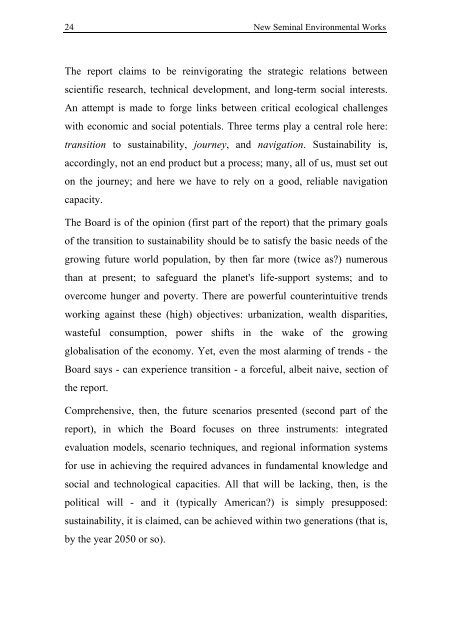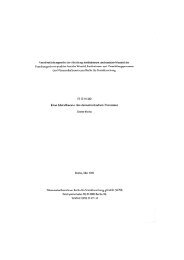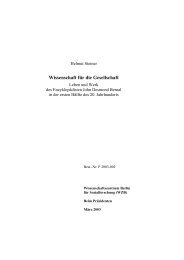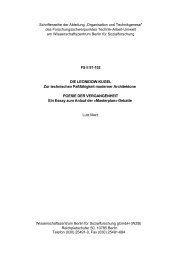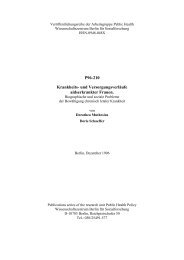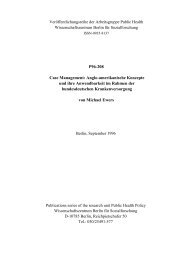New seminal environmental works. Nine review articles. - WZB
New seminal environmental works. Nine review articles. - WZB
New seminal environmental works. Nine review articles. - WZB
Create successful ePaper yourself
Turn your PDF publications into a flip-book with our unique Google optimized e-Paper software.
24 <strong>New</strong> Seminal Environmental Works<br />
The report claims to be reinvigorating the strategic relations between<br />
scientific research, technical development, and long-term social interests.<br />
An attempt is made to forge links between critical ecological challenges<br />
with economic and social potentials. Three terms play a central role here:<br />
transition to sustainability, journey, and navigation. Sustainability is,<br />
accordingly, not an end product but a process; many, all of us, must set out<br />
on the journey; and here we have to rely on a good, reliable navigation<br />
capacity.<br />
The Board is of the opinion (first part of the report) that the primary goals<br />
of the transition to sustainability should be to satisfy the basic needs of the<br />
growing future world population, by then far more (twice as?) numerous<br />
than at present; to safeguard the planet's life-support systems; and to<br />
overcome hunger and poverty. There are powerful counterintuitive trends<br />
working against these (high) objectives: urbanization, wealth disparities,<br />
wasteful consumption, power shifts in the wake of the growing<br />
globalisation of the economy. Yet, even the most alarming of trends - the<br />
Board says - can experience transition - a forceful, albeit naive, section of<br />
the report.<br />
Comprehensive, then, the future scenarios presented (second part of the<br />
report), in which the Board focuses on three instruments: integrated<br />
evaluation models, scenario techniques, and regional information systems<br />
for use in achieving the required advances in fundamental knowledge and<br />
social and technological capacities. All that will be lacking, then, is the<br />
political will - and it (typically American?) is simply presupposed:<br />
sustainability, it is claimed, can be achieved within two generations (that is,<br />
by the year 2050 or so).


